Online Class: Recognizing Hidden Trauma — Identifying Symptoms and Triggers

no certificate
with CEU Certificate*
-
15Lessons
-
22Exams &
Assignments -
4Hours
average time -
0.4CEUs
Course Description
In a world where our experiences shape who we are, the hidden specter of trauma often dictates paths we never intended to walk. Welcome to "Recognizing Hidden Trauma: Identifying Symptoms and Triggers," a transformative journey designed not just to educate, but to enlighten you about the unseen forces that can control the subconscious corners of our lives. This course is unlike anything else you've encountered online--a beacon of understanding and empathy, arming you with the tools to not only recognize hidden trauma but also to fundamentally change lives, beginning with your own.
Imagine standing at the crossroads of knowledge and empathy, equipped to understand the nuanced whispers of hidden trauma. This is where your journey begins--a course that beckons you to step into a realm where the invisible becomes visible, where the subtle signs of trauma unfold before your discerning eye. We're inviting you to join a movement of awareness and transformation, one where your enhanced understanding can lead to profound changes in how you perceive, interact with, and support others in their healing journeys.
Think about the power of insight--the ability to look beneath the surface and connect the dots others might miss. Through this course, you will gain a rare comprehension of the science behind trauma and its insidious hold on the brain. This is not merely information; this is your guide to empathy, a tool that empowers you to see the world from a healed perspective, allowing you to better navigate the complexities of human behavior. You will learn how trauma can subtly alter behavior, impact emotional responses, and manifest in unexpected physical symptoms.
Picture yourself developing the skills to identify and interpret these signs with precision, understanding the profound ways in which denial and suppression play roles in shielding us from unbearable pain. This knowledge is your gateway to compassion both for yourself and those around you. By mastering the art of recognizing triggers and understanding the spectrum of trauma responses, you become a pivotal figure in the healing process--not just for those who confide in you, but for society at large.
As you delve into the course, you will unravel the intricate ties between cultural and social factors that influence trauma recognition, empowering you to become a voice for change within your community. Imagine confidently challenging common misconceptions about trauma, armed with facts and sensitivity, and transforming the way people think about and respond to vulnerability in themselves and others.
Your path in this course will also lead you to understand how trauma alters attachment and relationship dynamics, often tracing invisible lines back to childhood experiences that echo into adulthood. With this understanding, you will be empowered to foster healthier connections, break cycles of misunderstanding, and be an advocate for sensitive, informed care.
Every step of this course is an opportunity to weave empathy and strategic management into your approach to life. Whether you're a caregiver, a professional, a friend, or a loved one, your newfound understanding of trauma triggers nurtures an environment where healing is possible. This is your chance to become an ambassador of resilience, crafting strategies that aid individuals in reclaiming their lives from the grips of past trauma.
By the end of this journey, you will not just have completed a course; you will have embarked on a life-changing odyssey that equips you with the wisdom to make tangible differences. Hidden trauma may be elusive, but your ability to recognize and respond to it won't be. Enroll today, and transform your understanding and capacity to make a real difference. This course is more than an educational endeavor--it's an essential step in building a mindful, aware, and compassionate future for everyone. Your journey of empowerment awaits. Join us and be part of this vital transformation.
- Completely Online
- Self-Paced
- 6 Months to Complete
- 24/7 Availability
- Start Anytime
- PC & Mac Compatible
- Android & iOS Friendly
- Accredited CEUs

Course Lessons
Lesson 1. Lifting the Veil: Hidden Trauma's Brain Pathways
Understanding the neuroscience of trauma reveals how it alters brain structures like the amygdala, hippocampus, and prefrontal cortex, affecting emotional regulation, memory, and executive functions. Armed with this knowledge, individuals can better recognize hidden trauma and address symptoms on their healing journey.Lesson 2. Trauma and the Healing Power of Neuroplasticity
Trauma disrupts psychological and physical health, seen in PTSD and altered neurotransmitter levels like serotonin and dopamine. Integrating therapeutic approaches such as mindfulness and pharmacotherapy supports neurochemical balance and emotional well-being, fostering comprehensive healing.Lesson 3. Navigating the Complexities of Trauma-Induced Behavior
Trauma-induced behavioral changes include hyperarousal, avoidance, and cognitive shifts, revealing the complex nature of a survivor's experiences. Developing a trauma-aware approach fosters environments supportive of resilience and recovery.Lesson 4. Navigating the Emotional Aftermath of Trauma: Understanding Dysregulation and Detachment
Informed support systems, such as educators and healthcare professionals, play a critical role in fostering environments where emotional intelligence and health are prioritized, promoting inclusive spaces for empathetic understanding. Resilience and adaptability are crucial in navigating the interplay between trauma and emotional dysregulation, embracing personal growth and a spectrum of emotional experiences.Lesson 5. The Hidden Impact: Trauma and Its Somatic Expressions
The somatic nature of trauma highlights the relationship between emotional experiences and physical symptoms. Recognizing this connection aids in addressing not only psychological but also hidden physical manifestations of trauma.Lesson 6. Recognizing Trauma Triggers
Trauma triggers are often catalysts revealing unaddressed emotional burdens, necessitating identifying external and internal stimuli to manage responses effectively. Acknowledging the surprising power of sensory associations and internal recollections helps individuals address entrenched trauma by fostering resilience through mindfulness practices and professional support.Lesson 7. Neuroscience Insights into the Effects of Trauma on Cognitive Functioning
The hyperactivity of the amygdala during trauma exacerbates cognitive challenges, affecting memory and concentration across diverse groups. Targeted therapies like EMDR and supportive environments in educational and occupational settings can mitigate trauma's impact and promote cognitive recovery.Lesson 8. Hidden Trauma: The Roles of Denial and Suppression
Denial serves as a subconscious rejection of harsh realities, while suppression involves a conscious choice to evade certain thoughts. Both mechanisms affect emotional and physical health, requiring tailored therapeutic strategies for effective trauma resolution.Lesson 9. Cultural Contexts in Trauma Recognition: A Global Perspective
Cultural interpretations deeply influence how trauma is recognized and addressed, affecting whether individuals seek help or continue to live in silence. Overcoming the stigma often attached to mental health issues requires embracing inclusive, culturally sensitive approaches for a holistic understanding.Lesson 10. Decoding Trauma: Exploring the Physiological Impact on Chronic Stress
The intricate relationship between trauma and the stress response system highlights how unaddressed trauma dysregulates the HPA axis, leading to chronic stress manifestations. Effective interventions like trauma-informed care and mindfulness practices can help recalibrate these systems, fostering resilience and recovery.Lesson 11. Exploring Attachments: How Early Bonds Influence Adult Relationships
Secure attachments, as theorized by John Bowlby, lay the foundation for healthy relationships by reinforcing trust and emotional availability. Insecure attachments, often stemming from inconsistent caregiving, can lead to maladaptive relational behaviors such as avoidance or anxiety.Lesson 12. Tracing Adult Behaviors to Childhood Trauma
Unresolved childhood trauma casts a long shadow into adulthood, embedding lasting patterns of stress, anxiety, and relationship challenges. Understanding these roots encourages shifting perceptions from flaws to survival strategies, laying a foundation for compassionate healing and reshaped societal frameworks through trauma-informed practices.Lesson 13. Traumatic Responses: Beyond the Surface
Categorizing trauma into acute, chronic, and complex types aids understanding of its manifestations, helping individuals identify symptoms and triggers, while acknowledging the impacts on physiological, psychological, and cognitive aspects of their lives. Interpersonal and behavioral changes like trust issues, substance use, or emotional numbing highlight the varied impacts, urging the need for tailored support systems and healing approaches.Lesson 14. Understanding Hidden Trauma: A Path to Healing
Trauma affects memory, attention, and emotional regulation, often leading to challenges in daily life and academic performance. Recognizing these impacts and using therapeutic interventions can help individuals regain control and foster healing.Lesson 15. From Trigger to Triumph: Mindful Approaches to Trauma
Understanding and managing trauma triggers involves recognizing stimuli that evoke distressing memories and using strategies like mindfulness and support systems to mitigate their impact. This process empowers individuals to regain control over their emotional responses and enhances personal resilience and growth.
Learning Outcomes
- Demonstrate understanding of neuroscience-based interventions by describing how therapies like EMDR and CBT can facilitate trauma recovery.
- Identify how trauma affects the brain by explaining changes in the amygdala, hippocampus, and prefrontal cortex.
- Define the role of the HPA axis in the body's stress response and its influence on mental health.
- Describe how neuroplasticity can aid in recovery from trauma through therapeutic interventions like CBT and EMDR.
- Identify and explain effective trauma-informed strategies for fostering supportive environments that mitigate subtle behavioral shifts in survivors.
- Recognize and describe the behavioral indicators of trauma across different scenarios, demonstrating an understanding of hyperarousal, avoidance, and re-experiencing.
- Define emotional dysregulation and explain its impacts on personal and professional life.
- Identify and implement mindfulness practices to manage emotional dysregulation related to trauma.
- Describe the impact of trauma on the body's stress response system and neurotransmitter balance, including cortisol and serotonin levels.
- Identify the neurobiological changes in the amygdala, prefrontal cortex, and hippocampus resulting from trauma.
- Describe and analyze internal triggers caused by thoughts and emotions, and apply mindfulness techniques, such as deep breathing, to manage these responses effectively.
- Recognize and articulate the sensory experiences that act as external trauma triggers by reflecting on personal responses and recording observations in a trigger journal.
- Demonstrate mastery of lesson content at levels of 70% or higher.
Additional Course Information

- Document Your Lifelong Learning Achievements
- Earn an Official Certificate Documenting Course Hours and CEUs
- Verify Your Certificate with a Unique Serial Number Online
- View and Share Your Certificate Online or Download/Print as PDF
- Display Your Certificate on Your Resume and Promote Your Achievements Using Social Media

Choose Your Subscription Plan
No Certificate / No CEUs
This course only
| Includes certificate | X |
| Includes CEUs | X |
| Self-paced |

|
| Instructor support |

|
| Time to complete | 6 months |
| No. of courses | 1 course |
Certificate & CEUs
This course only
| Includes certificate |

|
| Includes CEUs |

|
| Self-paced |

|
| Instructor support |

|
| Time to complete | 6 months |
| No. of courses | 1 course |
Certificates & CEUs
Includes all 600+ courses
| Includes certificate |

|
| Includes CEUs |

|
| Self-paced |

|
| Instructor support |

|
| Time to complete | 12 Months |
| No. of courses | 600+ |
Certificates & CEUs
Includes all 600+ courses
| Includes certificate |

|
| Includes CEUs |

|
| Self-paced |

|
| Instructor support |

|
| Time to complete | 24 Months |
| No. of courses | 600+ |
Related Courses
-
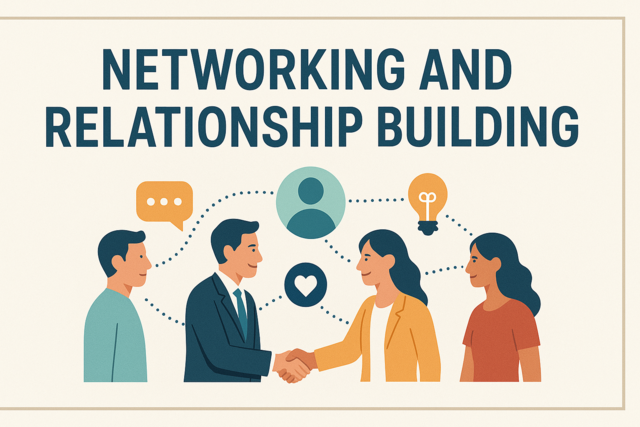 3 hours
0.3 CEUs
Networking and Relationship Building
+ More Info
3 hours
0.3 CEUs
Networking and Relationship Building
+ More Info
-
 5 hours
0.5 CEUs
Self-Discipline and Motivation Strategies
+ More Info
5 hours
0.5 CEUs
Self-Discipline and Motivation Strategies
+ More Info
-
 5 hours
0.5 CEUs
Cooking and Nutrition for a Healthy Life
+ More Info
5 hours
0.5 CEUs
Cooking and Nutrition for a Healthy Life
+ More Info
-
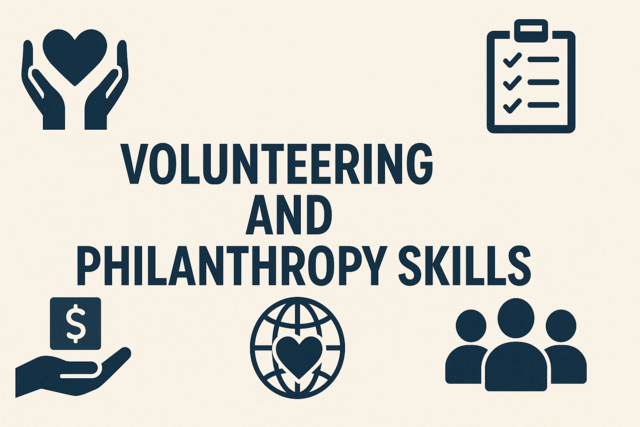 7 hours
0.7 CEUs
Volunteering and Philanthropy Skills
+ More Info
7 hours
0.7 CEUs
Volunteering and Philanthropy Skills
+ More Info
-
 6 hours
0.6 CEUs
The Art of Active Listening
+ More Info
6 hours
0.6 CEUs
The Art of Active Listening
+ More Info
-
 5 hours
0.5 CEUs
Fostering a Positive Attitude
+ More Info
5 hours
0.5 CEUs
Fostering a Positive Attitude
+ More Info
-
 6 hours
0.6 CEUs
Basic Gardening and Plant Care
+ More Info
6 hours
0.6 CEUs
Basic Gardening and Plant Care
+ More Info
-
 3 hours
0.3 CEUs
Parenting Skills for the Modern Family
+ More Info
3 hours
0.3 CEUs
Parenting Skills for the Modern Family
+ More Info
-
 5 hours
0.5 CEUs
Understanding Nutrition Labels and Food Choices
+ More Info
5 hours
0.5 CEUs
Understanding Nutrition Labels and Food Choices
+ More Info
-
 7 hours
0.7 CEUs
Sustainable Living and Eco-Friendly Practices
+ More Info
7 hours
0.7 CEUs
Sustainable Living and Eco-Friendly Practices
+ More Info
-
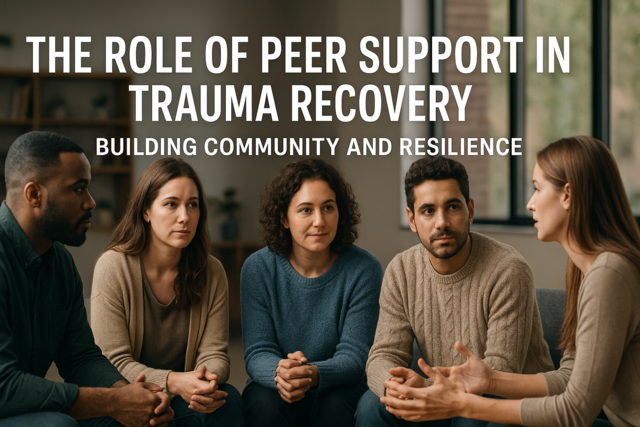 3 hours
0.3 CEUs
The Role of Peer Support in Trauma Recovery: Building Community and Resilience
+ More Info
3 hours
0.3 CEUs
The Role of Peer Support in Trauma Recovery: Building Community and Resilience
+ More Info
-
 3 hours
0.3 CEUs
Career Planning and Development
+ More Info
3 hours
0.3 CEUs
Career Planning and Development
+ More Info
-
 4 hours
0.4 CEUs
Narcissistic Loops: Breaking the Cycle of Self-Absorption
+ More Info
4 hours
0.4 CEUs
Narcissistic Loops: Breaking the Cycle of Self-Absorption
+ More Info
-
 7 hours
0.7 CEUs
Self-Care and Wellness Practices
+ More Info
7 hours
0.7 CEUs
Self-Care and Wellness Practices
+ More Info
-
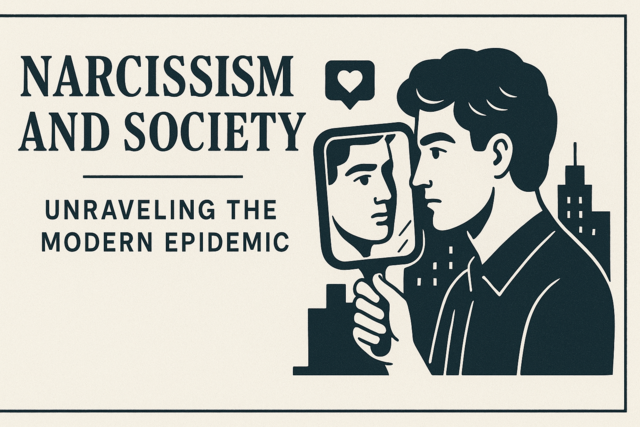 6 hours
0.6 CEUs
Narcissism and Society: Unraveling the Modern Epidemic
+ More Info
6 hours
0.6 CEUs
Narcissism and Society: Unraveling the Modern Epidemic
+ More Info
-
 7 hours
0.7 CEUs
Effective Communication Skills for Everyday Life
+ More Info
7 hours
0.7 CEUs
Effective Communication Skills for Everyday Life
+ More Info
-
 5 hours
0.5 CEUs
Personal Hygiene and Grooming Essentials
+ More Info
5 hours
0.5 CEUs
Personal Hygiene and Grooming Essentials
+ More Info
-
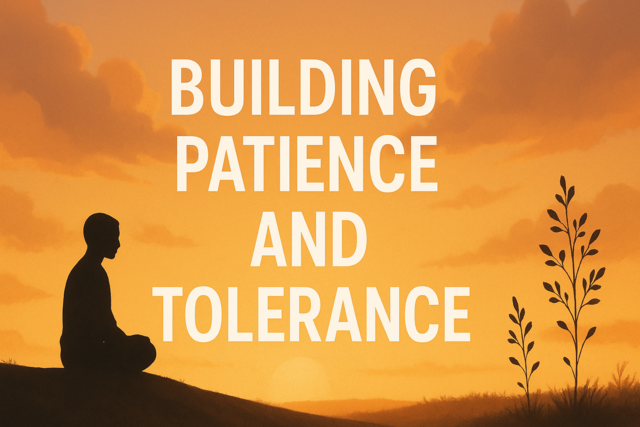 7 hours
0.7 CEUs
Building Patience and Tolerance
+ More Info
7 hours
0.7 CEUs
Building Patience and Tolerance
+ More Info
-
 5 hours
0.5 CEUs
Setting and Maintaining Personal Priorities
+ More Info
5 hours
0.5 CEUs
Setting and Maintaining Personal Priorities
+ More Info
-
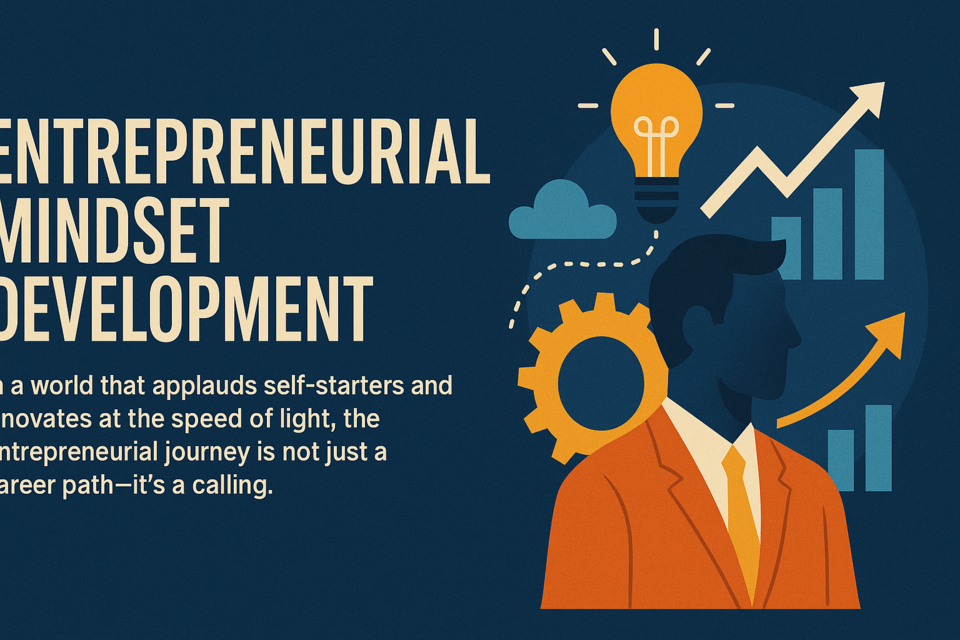 7 hours
0.7 CEUs
Entrepreneurial Mindset Development
+ More Info
7 hours
0.7 CEUs
Entrepreneurial Mindset Development
+ More Info
-
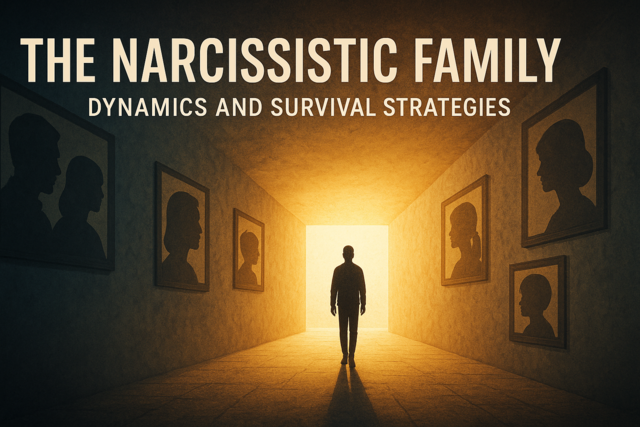 5 hours
0.5 CEUs
The Narcissistic Family: Dynamics and Survival Strategies
+ More Info
5 hours
0.5 CEUs
The Narcissistic Family: Dynamics and Survival Strategies
+ More Info




